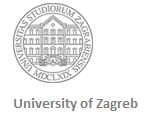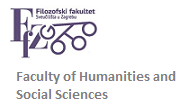Home » KNJIŽEVNI SEMINARI – 4. ili 6. semestar (Page 3)
Category Archives: KNJIŽEVNI SEMINARI – 4. ili 6. semestar
American literature and culture 2: American Non-Fiction Writing, 1580-1880
Course title: American literature and culture 2: American Non-Fiction Writing, 1580-1880Instructor: Prof. Douglas AmbroseECTS credits: 6Language: EnglishDuration: 4th or 6th semesterStatus: electiveEnrolment requirements: completed Introduction to English literature, enrolment in the 4th or 6th semester COURSE PURPOSE: This course provides an introduction to American history through various forms of non-fiction writing. Beginning with sixteenth-century English […]
Alternative Worlds in Contemporary British Fiction
Course title: Alternative Worlds in Contemporary British Fiction Instructor: Assoc. Prof. Iva Polak ECTS credits: 6 Language: English Duration: Semester 3 or 5 Status: elective Enrolment requirements: completed Introduction to English Lit/Introduction to English Lit 1 and 2 Course description: The course focuses on the establishment of a different literary canon following WW2 in the […]
War, Reconstruction and Transformation: American Literature 1860-1914 (arch.)
Course title: War, Reconstruction and Transformation: American Literature 1860-1914 Instructor: Dr Jelena Šesnić ECTS credits: 6 Language of instruction: English Semester: Spring 2012, Spring 2017 Status: elective Form of instruction: lecture (1 hour) + seminar (2 hours) Enrollment requirements: Introduction into the Study of English Literature Course description: In the seminar we shall cover a […]
Nineteenth-Century American Short Fiction
Course title: Nineteenth-Century American Short Fiction Undergraduate ElectiveNineteenth-Century American Short FictionProf. Charles L. CrowThursday 11:45-12:30, D-5Friday 2:45-4:15, A-123 charleslcrow@yahoo.com Course requirements: regular attendance, and readings completed before class discussions. Two short essays of approximately 1000-1250 words each. Final examination. Note 1: I welcome enthusiastic class discussion, including constructive disagreement, and conversations continued after class, in […]
Literature and the ‘Troubles’ (en)
Naziv kolegija: Literature and the ‘Troubles’Dr. Aidan O’Malley (Irish guest professor)Irish LiteratureTitle of Course: Literature and the ‘Troubles’Language: EnglishDuration:1 semester, 4th or 6thStatus: ElectiveLecture and seminar____________________________________________________________________________________ Literature and the ‘Troubles’ Some of the most important Irish writing of the past 40-50 years emerged in the context of the Northern Irish ‘Troubles’, and this course will […]
Canadian Literature and Culture
Course title: Canadian Literature and CultureInstructor: Dr. Vanja PolićECTS credits: 6Status: electiveSemester: one semester, 4th or 6th (2012/13)Enrolment requirements: completed Introduction in English Literature; enrolment in the 4th or 6th semesterCourse description: The course will consist of a close reading and analysis of selected (representative) Canadian texts and of placing them into the context of […]
The Trans/national in Contemporary Australian Literature and Film
Course title: The Trans/national in Contemporary Australian Literature and Film Instructor: Assoc. Prof. Iva Polak ECTS credits: 6 Status: elective Semester: 4th and/or 6th Enrollment requirements: completed Introduction to English Literature; enrolment in 4th and/or 6th semester Course description: Selected literary and cinematic texts from the 2nd half of the 20th cent. are studied in […]
American postmodernism and popular culture-archive
Course title: American Postmodernism and Popular CultureInstructor: Asst. Prof. Sven CvekECTS credits: 6Status: electiveSemester: 2nd or 3rd year of undegraduate studiesEnrollment requirements: student must be registered in the 3rd semesterCourse description: This course centers on some crucial aspects of US postmodernism, such as a transforming relationship between “popular” and “high” culture, inquiries into the exchanges […]
Victorian Literature: Genres and Issues (arch.)
Course title: Victorian Literature: Genres and Issues before 2020/21 Instructor: Prof. Borislav Knežević ECTS credits: 6 Status: elective Semester: 3rd and 5th, 4th and 6th Enrollment requirements: Introduction to English Literature Course description: This course is designed as an introduction to Victorian literature. The reading is made up by texts by representative works of some […]
Contemporary American Novel (arch.)
Course title: Contemporary American Novel Instructor: Prof. Stipe Grgas ECTS credits: 6 Status: elective Semester: 3rd and 5th or 4th and 6th Enrollment requirements: enrollment in the 3rd and 5th or 4th and 6th semester Course description: The course explores a number of novels which have been published since 9/11. The argument for targeting this […]
Beginnings of the Modern Novel in the Early 18th-century England
Course title: Beginnings of the Modern Novel in the Early 18th-century England Instructor: Assoc. Prof. Vanja Polić ECTS credits: 6 Language: English Duration: 4th or 6th semester Status: elective Enrolment requirements: completed Introduction to English literature, enrolment in the 4th or 6th semester Course description: The course will acquaint the students with historical, social and […]



